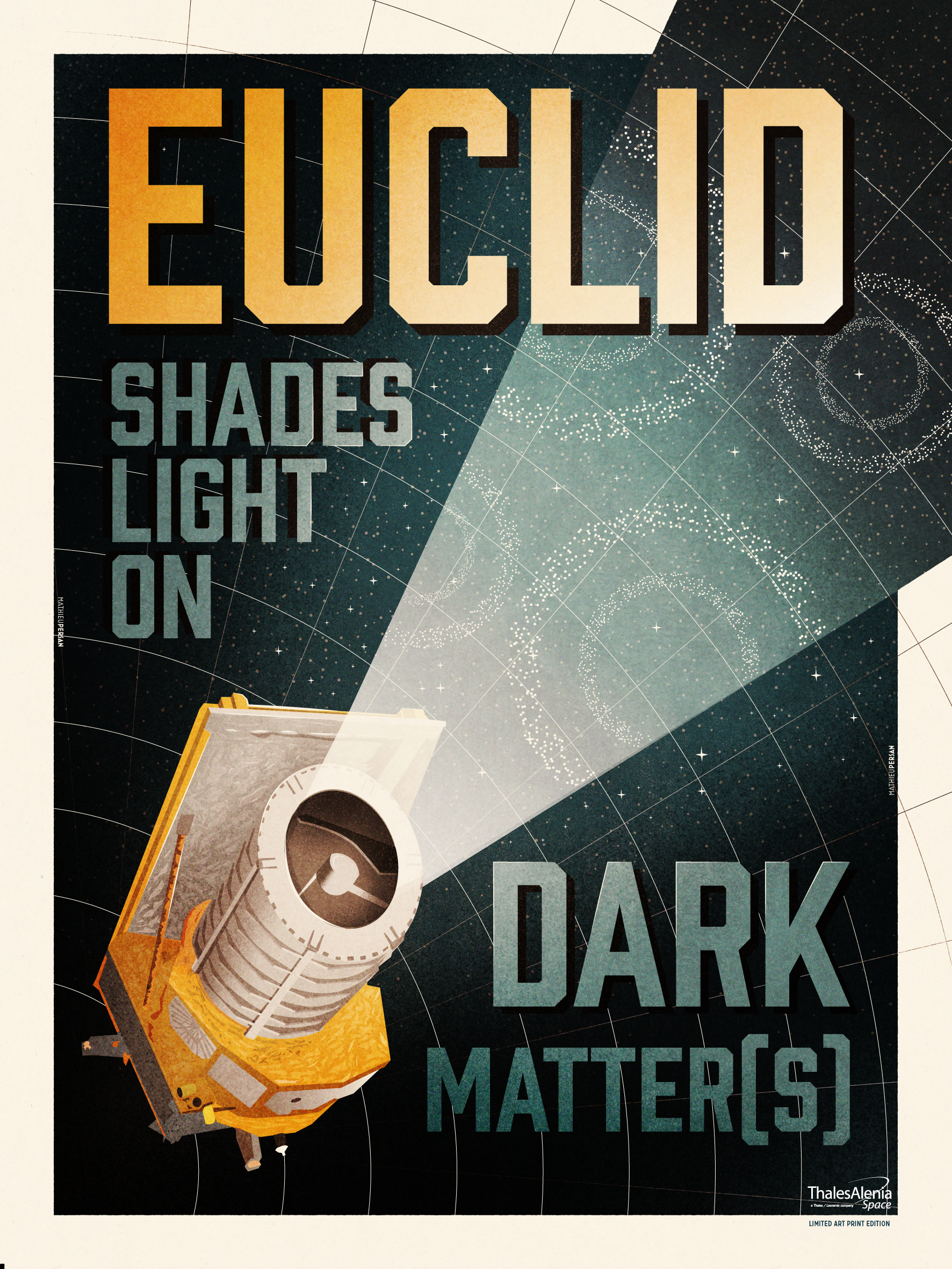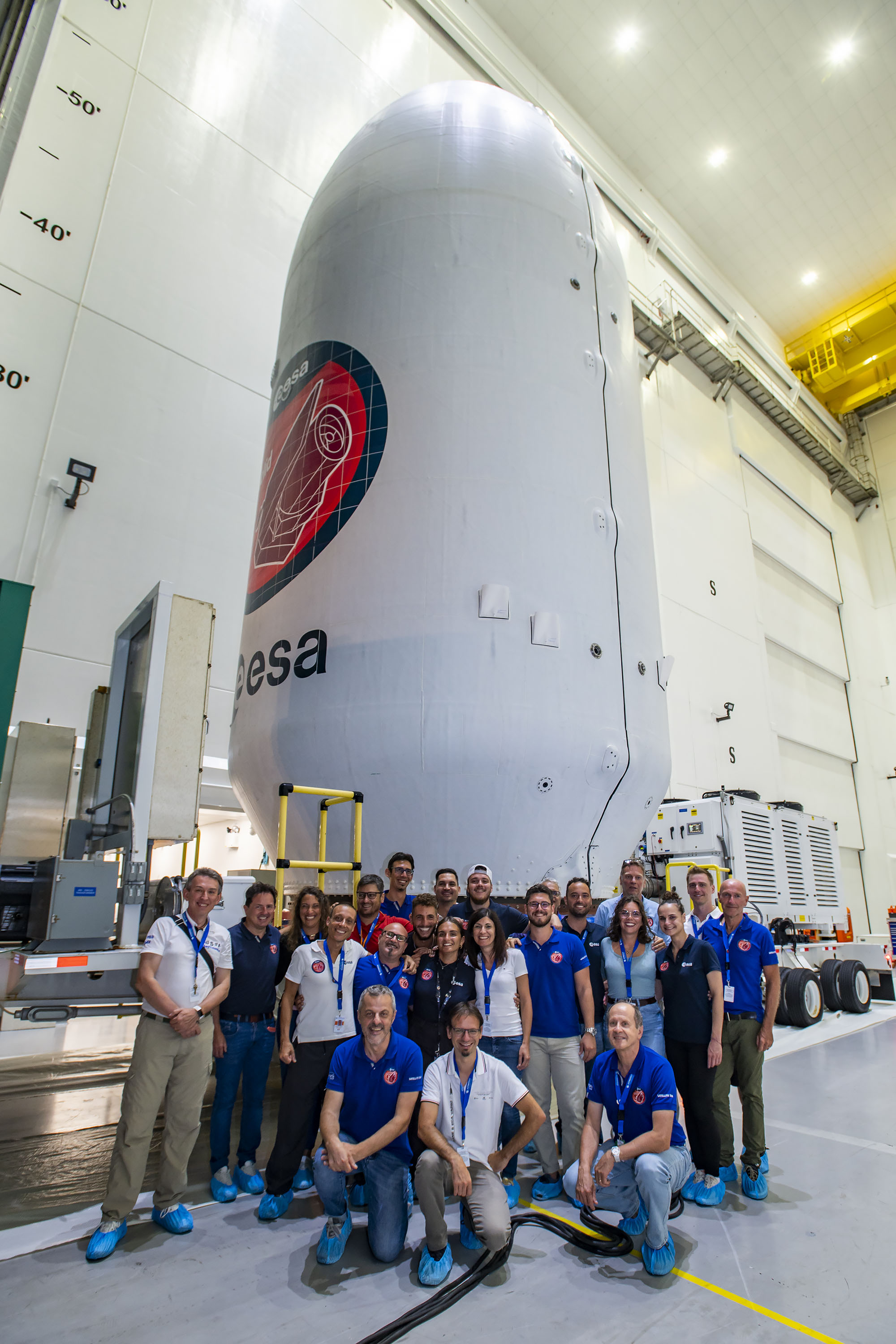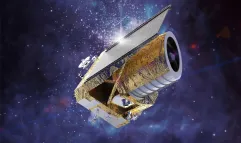Euclid commissioning phase is progressing fast and once concluded it will be scientists duty to interpret its data and translate it into discoveries that could revolutionize our understanding of the Universe.

© Thales Alenia Space \ Mathieu Persan
We previously started a chat with Andrea Cimatti and Michel Berthé, two esteemed members of the Euclid Consortium, who explained the challenges involved and the strategies scientists will use to manage and analyze the massive influx of data from the satellite. Here, they share their insights on the collaboration between industry and science and how Euclid will dramatically enhance our knowledge of the Universe.
How would you describe the collaboration between industry and the scientific community to develop such a technologically advanced satellite? Which feature excites you the most in terms of your research?
Michel: Euclid is a very specific science mission because, in order to achieve its goals, it required unprecedented collaboration between the scientific community (represented by the Euclid Consortium) and the companies that developed this advanced satellite, from the initial engineering studies to in-flight operations. This principle is applied throughout the project, resulting in excellent teamwork between all those involved and fostering industry’s genuine interest in playing a full-fledged role in meeting the scientific challenges of Euclid.
Andrea: I’ve followed the development of Euclid since 2007. During this long period, I’ve seen how fundamental research (i.e., the question of dark energy and dark matter) can be a “spark” that ignites a number of collaborations among very diverse partners: space agencies, research institutes, universities and companies both large and small.
This clearly shows how a purely scientific question can engender very concrete technological developments, benefiting the economies of the participating countries and society in general. Moreover, this program has also enabled training many young people, who now hold prestigious jobs in science or technology. And many more will join them in the coming years!
This is an excellent example of a virtuous circle. As I previously mentioned, the advanced Euclid satellite will enhance scientific research is several fields thanks to the wide spectrum of top-flight data. A true goldmine for the decades to come!

Thales Alenia Space, Euclid's team during the launch campaign with agency and partners.
© Thales Alenia Space \ SpaceX
Let’s say you have to explain this to one of your students: how do you think Euclid's discoveries will revolutionize our idea of the Universe and to what extent can they be communicated to a larger public?
Andrea: The Universe is a system composed of matter and energy. The main ingredients contributing to the cosmic budget are ordinary matter (5%), dark matter (26%) and dark energy (69%). Dark matter and dark energy are a mystery. Take the example of dark energy, the energy that is thought to be responsible for the accelerated expansion of the universe. The answer to its nature is hidden in a parameter called w, but the current constraints we face don’t allow us to understand what dark energy really is.
Euclid will help us understand whether dark energy is a property of space (cosmological constant) or a new kind of dynamic energy fluid or field filling all space (quintessence). Moreover, the same Euclid dataset will also allow us to test Einstein’s theory of gravity and to understand if what we call dark energy is instead a sort of mirage due to the application of wrong equations on a cosmological scale. This is just one example of the power of Euclid. Data from Euclid will allow us to answer many other questions about cosmology and astrophysics. In this regard, I consider it essential to communicate to the general public the role of Euclid as a “machine” that can answer some of the most profound questions of modern physics and cosmology.
Michel: Euclid will help explain how the expansion of the Universe has changed over time and better understand the forces and energies that drive the evolution of the Universe. We call them dark matter and dark energy, as their nature is not understood, even though they represent 95% of the Universe. With Euclid, we hope to be able to better understand their nature.

Thales Alenia Space's Euclid engineering team in ESOC for the commisioning phase with agency and partners.
© ESA \ Thales Alenia Space
What is your greatest wish for the Euclid mission? What do you personally hope to achieve or contribute to the scientific community through your involvement in this extraordinary adventure?
Michel: As an engineer, my greatest wish is that the spacecraft, its telescope and the two scientific instruments will work as we’ve designed and tested them. I’m convinced that if this is the case, scientists will be able to make fantastic discoveries that could hopefully lead to a Nobel Prize.
Andrea: My greatest wish is pretty obvious: I hope that the whole “Euclid system” will perform as expected or even better, from the spacecraft/telescope/instruments to the SGS, and of course the scientific results that will help us discover the Universe’s darkest secrets, through an unprecedented study of dark energy and dark matter. That said, my personal objective is to continue to contribute to the success of the mission in all my areas of responsibility, from the ESA Euclid Science Team to the Euclid Consortium Board and SWG coordination. As a professor, I will also continue to encourage students to be involved in Euclid. I see Euclid as a great team game, very demanding, but very stimulating. Everyone’s contribution will be vital for its overall success. Fingers crossed!
In just a few weeks Euclid will start transmitting its nominal flow of data and images, then brilliant minds will analyze this information to unveil the secrets at the heart of it. But the Euclid chronicles won’t stop here because this is just the start of a new chapter, for science and for humanity in general.


